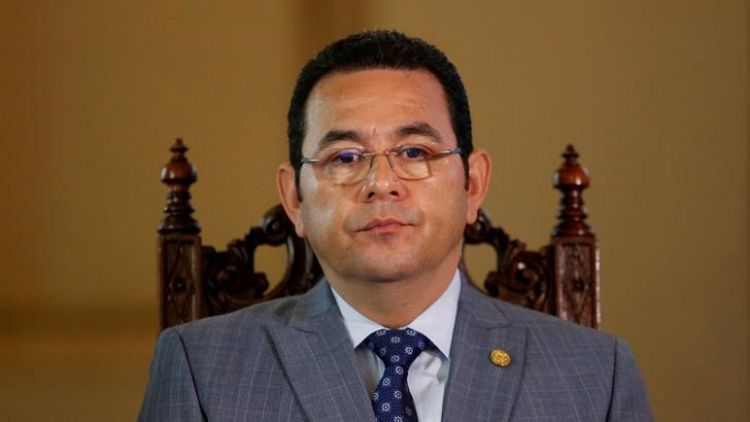By Sofia Menchu
GUATEMALA CITY (Reuters) - Guatemalan President Jimmy Morales said on Friday his government has decided not to renew the mandate of a U.N.-backed anti-graft commission that helped bring down his predecessor and also tried to have Morales impeached.
Guatemala gave the commission a year to exit the country.
Working with Guatemala's attorney general, the International Commission Against Impunity in Guatemala (CICIG) in 2017 sought to prosecute Morales, a former comedian, over illegal financing allegations during his election campaign two years earlier.
That move followed separate CICIG graft probes into members of the president's family. Morales tried to throw the CICIG out of the country at the time, prompting criticism at home and from the United Nations and the U.S. State Department.
That bid failed, but Morales argued the CICIG needed to leave because its members were "violating" Guatemala's laws and "sowing judicial terror" with "selective justice."
"We have officially notified the Secretary General of the United Nations that we will not renew the mandate of the CICIG," Morales told a news conference in Guatemala City.
The CICIG's mandate in Guatemala will expire on Sept. 3, 2019, said a letter Morales sent to U.N. Secretary General Antonio Guterres. The CICIG had a year to transfer technical capacities to Guatemalan authorities and withdraw, it said.
Though Congress voted not to impeach the president in 2017, Morales' credibility was damaged due to the CICIG probe.
He has since sought to align himself more closely with the administration of U.S. President Donald Trump.
In December, Guatemala was one of a handful of nations to back Trump's decision to move the U.S. embassy in Israel to Jerusalem in a vote at the United Nations.
Trump has also been critical of the United Nations.
Morales declared CICIG head Ivan Velasquez "persona non grata" in August 2017 and ordered him to leave Guatemala, but the nation's top court suspended the decision.
CICIG spokesman Matias Ponce told reporters the body appreciated the support of the international community and civil society and would keep the public informed about its next steps.
Morales won office in 2015 running on a platform of honest governance after his predecessor, Otto Perez Molina, was forced to resign and was imprisoned in a multimillion-dollar graft case led by the CICIG. Perez is still in prison while on trial.
(Reporting by Sofia Menchu; Writing by Anthony Esposito; Editing by Dave Graham and Matthew Lewis)


